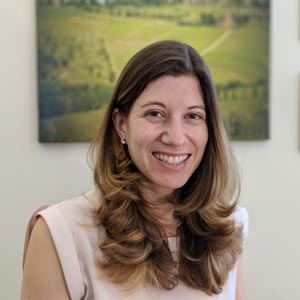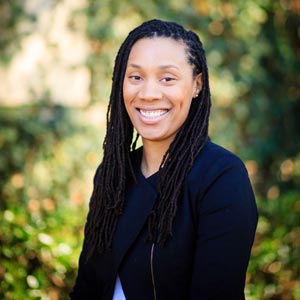

Most people know engineering is a possible degree to pursue, but have you ever heard of engineering education?
The School of Universal Computing, Construction, and Engineering Education (SUCCEED) was formed in 2018, in conjunction with the STEM Transformation Institute, as the first engineering and computing education department at a minority-serving institution. Its aim is to research evidence-based approaches that broaden participation and improve engineering success. Two highly capable and driven women are at the helm, Trina Fletcher and Alexandra Coso Strong.
Fletcher describes engineering education research as an exploration and analysis of what’s taking place within engineering spaces including higher education and industry. “There are questions you ask,” she says. “Who gets to be engaged, and why? How have policies changed over time? Engineering education has been around for years, but engineering education research has arguably only developed over the last two decades.” Strong agrees. “There’s a focus on learning. Learning engineering is unique from learning in other fields. It doesn’t happen in isolation, and so it goes back to who’s sitting at the table, as well as all of the other structural and cultural factors that can impact an engineering learner’s experience.”
SUCCEED plans to offer two new degree programs: a bachelor of science in interdisciplinary engineering and a doctorate in engineering and computing education. There are only a handful of Ph.D programs in engineering education, and they aren’t located in major metropolitan centers, which is one of the reasons FIU’s program will be so attractive, especially to students of diverse backgrounds. “Miami is a hub for Latin America and the Caribbean, and it’s such a diverse city,” says Strong. “That diversity will be reflected in the community students are working with, which will broaden their experience.”
One of the strengths of SUCCEED’s programs is the flexibility they offer. Students will be able to engage in projects throughout their coursework, which will allow them to practice what they learn in the classroom and provide firsthand experience in understanding the implications of design.
“It’s a specialization and a generalization program at the same time,” says Fletcher. “Top leaders in the field are looking for specific skills in employees. They want engineers who are creative and who think outside of the box, and this program is designed to create those engineers.” Focused engineering jobs won’t ever disappear, but in an increasingly global community, the broad challenges facing society need broad solutions from interdisciplinary and creative thinkers.
Fletcher and Strong know how to train students in precisely those key skills. Fletcher holds a doctorate in engineering education from Purdue University. As an undergrad at the University of Arkansas at Pine Bluff, Fletcher took part in a National Science Foundation-sponsored program to get HBCU students to enroll in STEM disciplines, where she first learned about STEM education. She worked for several years in the engineering industry, but appreciates the benefits of a shift to academia. “I can influence and impact culture at a systematic level, by helping to create policies across the board, in a way that I couldn’t at a company.”
Strong, who holds a doctorate in aerospace engineering from Georgia Tech, came to engineering education by accident. After falling in love with engineering while watching the film Apollo 13 as a teenager, she studied aerospace engineering as an undergrad, and was working on systems engineering as a master’s student when she was offered a research assistantship in engineering education. She hasn’t looked back (the goal of her doctorate research was to improve students’ abilities to think more broadly about complex systems design).
There are a number of goals for SUCCEED within the school’s first five years. The pair want to see the creation of a strong research community of faculty and graduate students on campus, and collaborations with other units such as the Center for the Advancement of Teaching, for example. But ultimately, they want students to understand that engineering can be defined in different ways. Engineers can be successful as patent lawyers, as Google marketing managers, as members of Congress. Says Strong, “we’re hoping to attract people and show them pathways they wouldn’t have seen before.”
